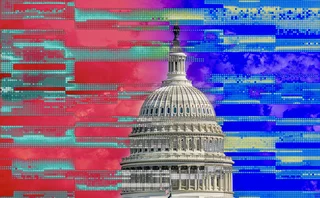BMA: SEC Should Delay TRACE Permanent Fee Approval
ADMINISTRATION & MANAGEMENT
The Securities and Exchange Commission (SEC) should delay approval of the National Association of Securities Dealers’ (NASD) proposal for a permanent fee structure for the Trade Reporting and Compliance Engine (TRACE), says a comment letter from the Bond Market Association (BMA).
"We believe some financial disclosure [regarding TRACE] is necessary before the SEC can make a decision," Michele David, vice-president and assistant general counsel of the BMA, tells Inside Market Data.
"NASD has never provided any financial information disclosing its developmental and operating costs for the TRACE system, nor the revenues generated by TRACE fees under the pilot program, to the Commission or to the industry," states the BMA letter, which was sent to the SEC on Nov. 25.
The letter goes on to say that "a reasonable and fair level of expenses allocable to market data should be established, and those expenses, together with the revenue streams from the sale of market data, should be publicly disclosed."
"Basically, without understanding what the expenses are, one cannot assess the [TRACE] system," says David. Meanwhile, members of the BMA, which is mainly composed of brokers/dealers, are upset because the fees for TRACE are "really high," she says. Given there might be a correlation between the fees and the increase in expenses, members want to know what is going on, says David. The fees include system, transaction reporting and market data charges.
"From the beginning the BMA has been working with NASD so that brokers/dealers have an economic interest in the sale of market data," says David. The brokers/dealers have an interest because they create the deals behind the data, she adds.
Although NASD has suggested that it would share net revenues from market data, it has never made any accounting of this interest, says David. Accordingly, she says, there is no rule governing how market data net revenues would be shared and how they would be passed on to brokers/dealers--for instance, through lower TRACE fees.
The BMA has no official position on what should be done with net revenues from the sale of market data, says David.
Add It Up
The figures that have been released by NASD raise concerns, say industry sources. For the first 12 months of operation, ending June 30, 2003, TRACE incurred expenses totaling about $12.4 million, which includes partial recovery of the original investment--approximately $7.2 million--for the development of TRACE, according to the NASD proposed rule change, which was filed with the SEC in October.
However, NASD estimated that total annual operating expenses for TRACE would be $6.0 million in its original fee proposal from May 2002, states the BMA letter.
NASD states that the incurred expenses include software enhancements, monitoring of transaction data and surveillance of the corporate debt market. NASD has also listed TRACE revenues for the first year of operation ending June 30, 2003 as totaling approximately $12.4 million, comprised of about $2.0 million in system fees, $8.9 million in transaction reporting fees and $1.5 million for market data fees. However, NASD does not provide further detail regarding revenues in the October SEC filing.
NASD is seeking permanent approval from the SEC for the TRACE fee structure prior to expiration of the pilot program for fees on Jan. 31, 2004.
A NASD spokesperson says it doesn’t comment on comment letters.
Arielle Weliky
Only users who have a paid subscription or are part of a corporate subscription are able to print or copy content.
To access these options, along with all other subscription benefits, please contact info@waterstechnology.com or view our subscription options here: http://subscriptions.waterstechnology.com/subscribe
You are currently unable to print this content. Please contact info@waterstechnology.com to find out more.
You are currently unable to copy this content. Please contact info@waterstechnology.com to find out more.
Copyright Infopro Digital Limited. All rights reserved.
As outlined in our terms and conditions, https://www.infopro-digital.com/terms-and-conditions/subscriptions/ (point 2.4), printing is limited to a single copy.
If you would like to purchase additional rights please email info@waterstechnology.com
Copyright Infopro Digital Limited. All rights reserved.
You may share this content using our article tools. As outlined in our terms and conditions, https://www.infopro-digital.com/terms-and-conditions/subscriptions/ (clause 2.4), an Authorised User may only make one copy of the materials for their own personal use. You must also comply with the restrictions in clause 2.5.
If you would like to purchase additional rights please email info@waterstechnology.com
More on Regulation
Off-channel messaging (and regulators) still a massive headache for banks
Waters Wrap: Anthony wonders why US regulators are waging a war using fines, while European regulators have chosen a less draconian path.
Banks fret over vendor contracts as Dora deadline looms
Thousands of vendor contracts will need repapering to comply with EU’s new digital resilience rules
Chevron’s absence leaves questions for elusive AI regulation in US
The US Supreme Court’s decision to overturn the Chevron deference presents unique considerations for potential AI rules.
Aussie asset managers struggle to meet ‘bank-like’ collateral, margin obligations
New margin and collateral requirements imposed by UMR and its regulator, Apra, are forcing buy-side firms to find tools to help.
The costly sanctions risks hiding in your supply chain
In an age of geopolitical instability and rising fines, financial firms need to dig deep into the securities they invest in and the issuing company’s network of suppliers and associates.
Industry associations say ECB cloud guidelines clash with EU’s Dora
Responses from industry participants on the European Central Bank’s guidelines are expected in the coming weeks.
Regulators recommend Figi over Cusip, Isin for reporting in FDTA proposal
Another contentious battle in the world of identifiers pits the Figi against Cusip and the Isin, with regulators including the Fed, the SEC, and the CFTC so far backing the Figi.
US Supreme Court clips SEC’s wings with recent rulings
The Supreme Court made a host of decisions at the start of July that spell trouble for regulators—including the SEC.







